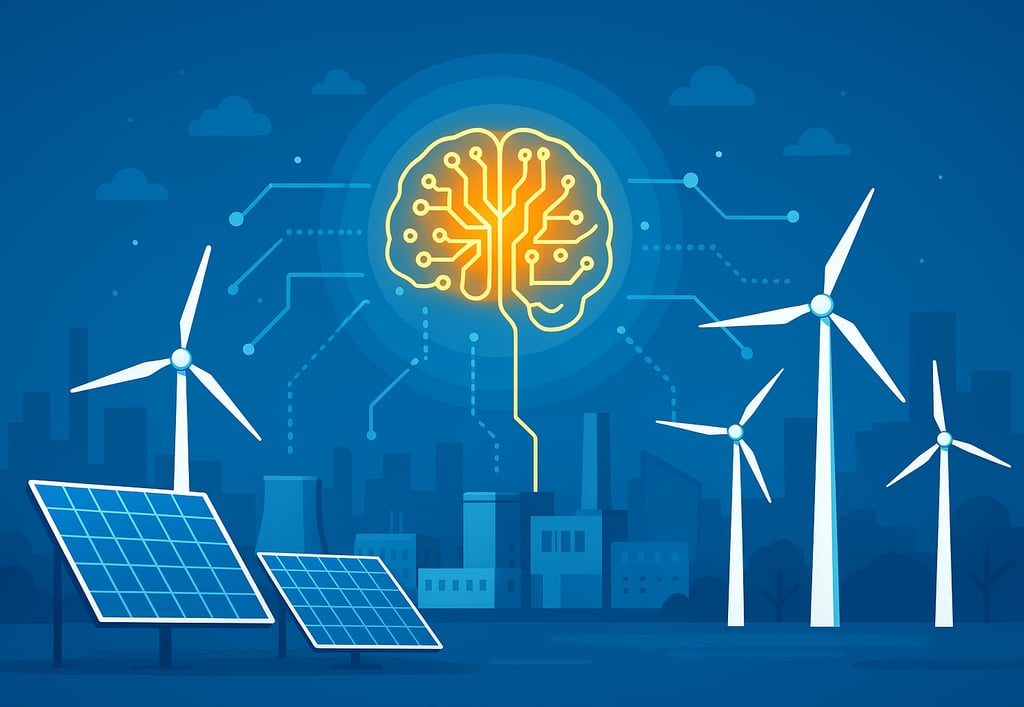AI in Energy: How Artificial Intelligence Optimizes Resources and Reduces Costs
Energy is the foundation of modern life, powering everything from homes and businesses to transportation and communication systems. With growing global demand and concerns about sustainability, the energy sector faces constant pressure to deliver cleaner, cheaper, and more efficient solutions. Artificial Intelligence (AI) is stepping up as a game-changer, helping to optimize energy use, reduce waste, and lower costs.


Smarter Energy Grids
Traditional power grids often struggle to balance supply and demand, leading to inefficiencies and occasional outages. AI-powered smart grids can predict usage patterns, adjust energy distribution in real time, and quickly detect problems. This means fewer blackouts, more efficient energy use, and reduced operational costs.
Renewable Energy Optimization
Solar and wind power are essential for a greener future, but they depend heavily on weather conditions. AI systems analyze weather forecasts and historical data to predict when renewable energy sources will generate more or less power. This helps energy companies store surplus energy during peak times and release it when needed, making renewable energy more reliable and affordable.
Reducing Waste and Energy Loss
A significant amount of energy is wasted during transmission and distribution. AI can monitor infrastructure, detect inefficiencies, and suggest improvements to reduce energy loss. For example, machine learning can predict equipment failures before they happen, preventing downtime and costly repairs.
Smarter Homes and Businesses
AI doesn’t just help at the industrial level—it’s also transforming how we use energy at home and work. Smart thermostats, lighting systems, and appliances powered by AI can learn our habits and automatically adjust to save energy. For businesses, AI can analyze energy consumption patterns to cut costs while keeping operations smooth.
Lowering Costs for Consumers and Companies
By optimizing production, reducing waste, and improving efficiency, AI directly lowers energy costs. Consumers benefit from smaller bills, while companies save millions on operations and maintenance. This creates a win-win situation that supports both economic and environmental goals.
Conclusion
AI in energy is not just about efficiency—it’s about building a sustainable future. By making grids smarter, boosting renewable energy reliability, reducing waste, and cutting costs, AI is transforming the way we produce and consume power. As these technologies continue to grow, they bring us closer to a world where energy is cleaner, cheaper, and more accessible for everyone.